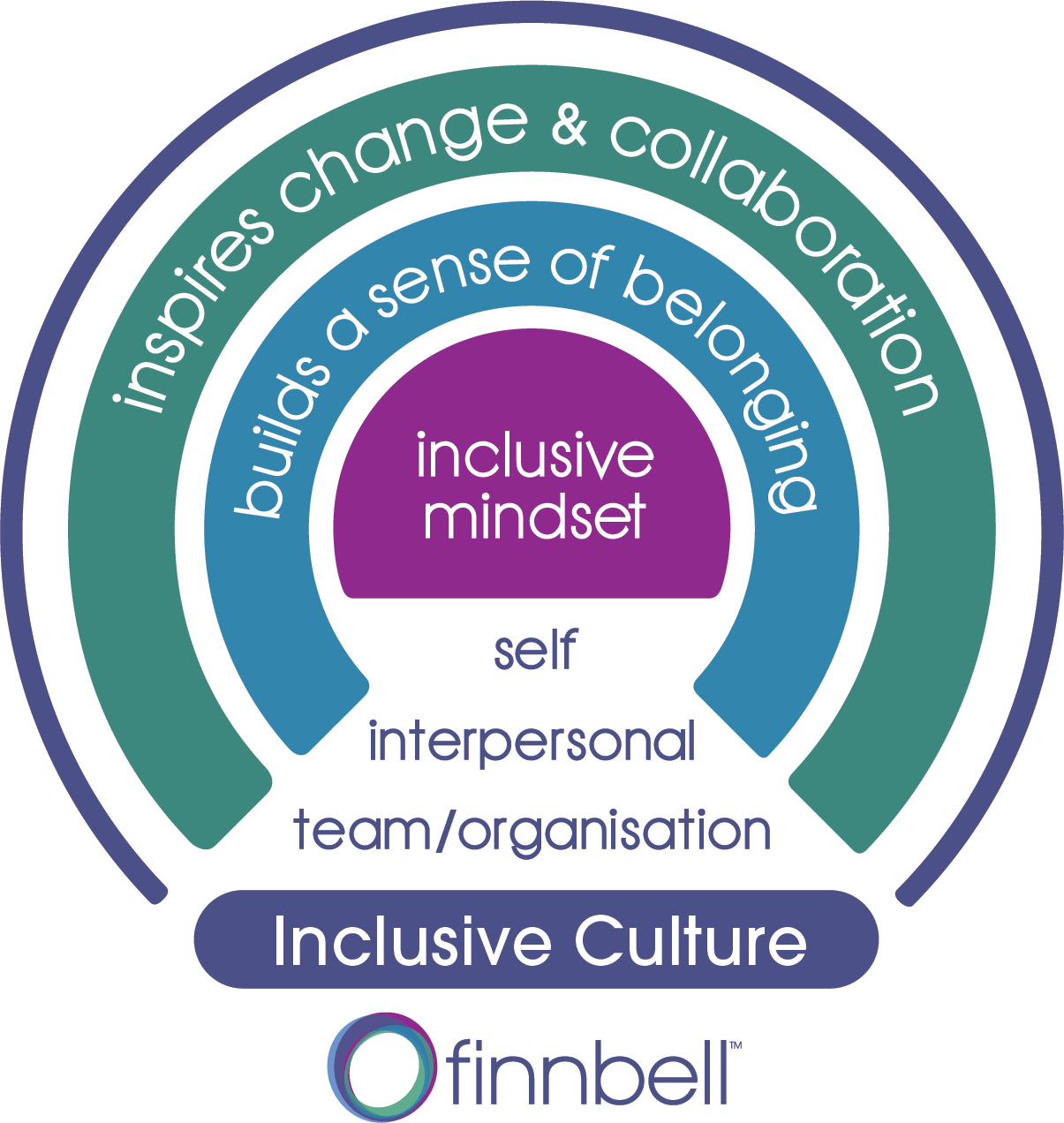A culture which ‘acts’ and ‘feels’ inclusive is a fundamental requirement for increasing and sustaining workplace diversity.
The business case for inclusion and diversity is relevant now more than ever. The key behaviours and characteristics associated with inclusive workplaces are linked to a thriving culture with numerous studies finding increased employee engagement, enhanced creativity, improved performance, customer service and ability to attract talent. Realising this potential requires a willingness to reconsider how we interact and respond to people and situations, in particular:
- Adopting a curious mindset and actively exploring novel insights, workplace norms and opportunities for change / innovation.
- Replacing the expectation to ‘fit-in’ with the invitation to challenge the status-quo and to ‘stand-out’ by expressing what you really think and feel;
- Embracing the discomfort and doubt that can arise when presented with different perspectives and ways of working.
I have over 20 years experience facilitating Inclusion & Diversity programs and strategic reviews with the aim to cultivate a curious, connected and collaborative culture which enables people to thrive. This includes a focus on traditionally male dominated sectors (e.g. Utilities, Mining, Transport & Logistics, Sport & Recreation) and organisations actively seeking to diversify their workforce. My extensive workplace experience has been strengthened by specialist graduate studies in Gender Mainstreaming, Policy & Analysis, Psychology and Applied Neuroscience.
Strengthen
Psychological Safety
Pyschological Safety is described as feeling free to ‘bring your whole self to work’ and to express what you need, think and feel without without concern of being judged, criticised or excluded. Extensive research has found that Psychological safety is by far the most important dynamic that sets successful teams apart.
I am certified in the ‘4 Stages of Psychological Safety’ research-based framework, the Psychological Safety Indicator (PSI) assessment and facilitate dynamic learning experiences to transform organisations into ‘sanctuaries of inclusion and incubators of innovation’.
Connected and Collaborative Teams is an interactive experience which explores the foundational behaviours for building psychological safety. This includes:
- Learn the three states which characterise any team members experience and how this directly impacts their sense of engagement and performance;
- Understand the nuances which contribute to social exclusion and what forms the basis of belonging and social connectedness;
- Gain insights to the core behaviours which accelerate learning, increase contribution, and stimulates creativity and continuous improvement.
- Increase awareness of how to embrace dissenting perspectives and navigate conflict.
Build a sense
of belonging
We are hard wired for belonging. Neuroscience validates it is essential for our wellbeing, an important intrinsic motivator and supports people to thrive and reach their full potential. Creating a sense of belonging is also the ultimate outcome and measure of any successful inclusion and diversity initiative.
iBelong is an interactive experience which builds capability for how to cultivate an environment where people feel welcome to ‘stand-out’ as opposed to striving to ‘fit in’.
- Take a deep dive into the four indicators which underpin a sense of belonging, including the extent to which an individual feels heard, seen, empowered and connected to the broader team;
- Understand why inclusion and belonging are no longer a ‘nice to have’ but a business imperative;
- Clarify the three commitments which are key to sustaining an inclusive culture;
- Strengthen mutual respect and establish a common point of reference regarding what team members can expect from each other;
- Identify the nuances and circuit-breakers which diminish belonging and create the experience of exclusion.
The tailored experience is informed by the iBelong assessment which provides a baseline regarding the team’s strengths and current experience and supports with prioritising specific behaviours for focus and growth.
Harness
Curiosity
An inclusive and innovative workplace culture requires being open to new ways of thinking and working which move beyond our default habits and inherent biases. Gain insights to the Neuroscience regarding how cultivating a curious mindset increases our capacity to be creative, adapt to change and positively interact with others.
Harnessing Curiosity expands the traditional unconscious bias conversation by demonstrating that biases are not inherently ‘bad’ or ‘good’ and that they can have can have both constructive and negative outcomes.
- Clarify the three core behaviours which underpin a curious and respectful culture;
- Learn the common thinking traps which adversely impact how we assess and respond to opportunities, challenges and people;
- Transform your capacity to respond to change and positively navigate interactions which ‘don’t feel right’, including exploring diverse and dissenting perspectives.
- Plan for scenarios where it is important and beneficial to embrace a curious mindset.
Increase
Diversity
Building a diverse workforce which reflects the community it serves confers many business benefits but even more so, it is simply the right thing to do. Our programs support with building and retaining a diverse workforce and candidate pipe-line by offering custom Mentoring, Job Shadowing and Women in Leadership Programs.


Inclusive Culture Survey &
Inclusive Leadership 360 Assessment
Informed by current research and best-practice, the Culture Survey and Leadership 360 Assessment covers nine inclusive behaviours and characteristics from three different and equally important perspectives:
- Developing an inclusion mindset;
- Building belonging; and
- Inspiring change & collaboration.
The accompanying reports provide insights regarding:
- the recognised strengths of an individual and/or team;
- potential blind spots where there is a gap between a leaders/teams perception of current performance and feedback captured from stakeholders; and
- areas for development which are prioritised based on the perceived gap between existing and desired behaviours.
This ensures the time and resources invested into cultivating an inclusive culture is responsive to actual feedback (rather than perceived needs and preferences) to deliver maximum results for teams and the broader organisation.
